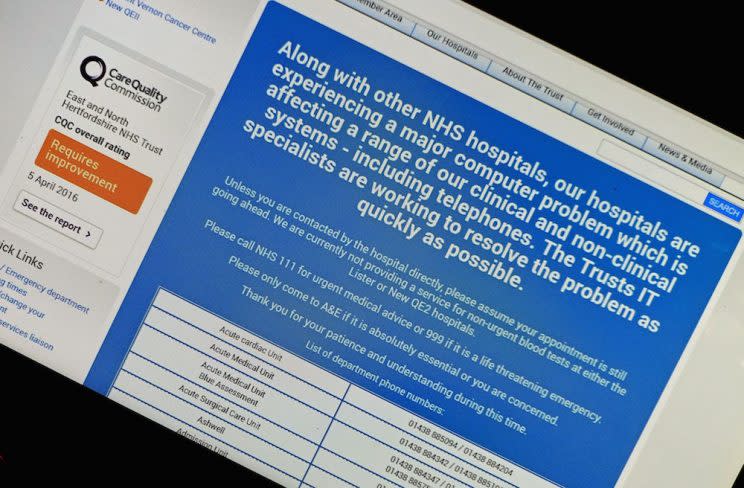What Theresa May's new (and heavily regulated) internet could mean for you

Theresa May is planning to transform the way the internet works in the UK, with a series of new regulations.
As revealed in a section at the end of the Conservative election manifesto this week, the Tory leader aims to add extensive regulations that will affect every single Brit and what they see on the internet.
“Some people say that it is not for government to regulate when it comes to technology and the internet. We disagree,” says the manifesto.
Will a Tory government decide what can be published online?
Partly, yes. The idea is to give more power to the government when it comes to deciding what content is published online – while most of the power currently sits with private companies such as Google and Facebook. The manifesto suggests that new laws could make it harder to access certain content, such as pornography, online.
“We will put a responsibility on industry not to direct users – even unintentionally – to hate speech, pornography, or other sources of harm”.
In the era of ‘fake news’, the plans would also regulate the type of news that be published online.

“We also need to take steps to protect the reliability and objectivity of information that is essential to our democracy and a free and independent press,” reads the manifesto.
What’s more, the manifesto proposes that internet films should pay a levy, with the money going towards advertising that warns people about the dangers of the internet. This is similar to the levies currently paid by gambling companies. Any firms not complying with the new rules could be prosecuted.
“We will introduce a sanctions regime to ensure compliance, giving regulators the ability to fine or prosecute those companies that fail in their legal duties, and to order the removal of content where it clearly breaches UK law,” promises the manifesto.
[graphiq id=”ih3FNRayuVL” title=”Theresa May’s Approval Ratings” width=”600″ height=”513″ url=”https://sw.graphiq.com/w/ih3FNRayuVL” link=”https://www.graphiq.com” link_text=”Visualization by Graphiq” frozen=”true”]
Will the new laws tackle internet trolls?
That’s the idea. May is clear that online incidents should be treated just as seriously as those that happen offline and that the same rules should apply across both.
“Our starting point is that online rules should reflect those that govern our lives offline,” says the manifesto.
“It should be as unacceptable to bully online as it is in the playground, as difficult to groom a young child on the internet as it is in a community, as hard for children to access violent and degrading pornography online as it is in the high street, and as difficult to commit a crime digitally as it is physically”.
What else will change?
The manifesto promises to give people new rights to stay in control of their data, including making major social platforms like Facebook delete information held about them at the age of 18.
It also promises that personal data should be stored in a secure way, an issue that has been in the news recently after NHS computer networks running a woefully out-of-date version of Windows software were hacked.
READ MORE: Instagram ranked most likely to have negative affect on children’s mental health
READ MORE: What are Facebook ‘dark adverts’ – and could they swing the General Election?
Will the government be able to snoop on you?
The Investigatory Powers Act, which came into effect at the end of 2016, has already given the government never-seen-before spying powers. The Act will gives the government the power to collect the browsing records of everyone in the country, as soon as that part of the legislation is put into effect.
The government argues that it needs these powers to monitor criminals and terrorists. The new election manifesto appears to echo this view and has not ruled out forcing companies to build ‘back door’ access into their software for spying purposes.
“We do not believe that there should be a safe space for terrorists to be able to communicate online and will work to prevent them from having this capability,” says the manifesto.

 Yahoo Finance
Yahoo Finance 
